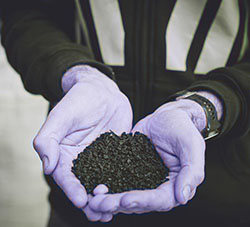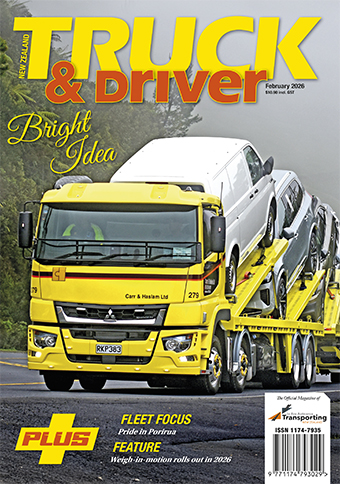
New Zealand to Trial First-Ever Rubber Road in Canterbury
Posted: 20-Nov-2025 |
According to a news report from Jonathon Leask, the Selwyn District is paving the way for a new era in sustainable infrastructure, announcing plans for New Zealand's first-ever rubber road trial. The innovative project is scheduled to take place in January in the town of Glentunnel, located on State Highway 77.
The trial was revealed during a councillor briefing on infrastructure, where the council's head of operation delivery, Gareth Morgan, spoke about "exploring lots of innovations and trying to do things differently". While the council noted the project is still in the "early stages of investigation," it confirmed the plan to test the technology in the new year.
The recycled rubber granules for the road surface will be provided by Treadlite NZ, the only company in New Zealand supplying this material for use in pavements. Treadlite's executive director, Brad Pierce, confirmed they are working with a contractor, understood to be the council's roading partner HEB, for the trial. "I'm excited to see recycled rubber improving the performance of New Zealand roads across the country in the very near future," Pierce stated.
The use of rubber in asphalt can increase pavement durability, reduce road noise, and provide a sustainable method for recycling used tires.
This project is part of a wider push for innovation by the Selwyn council. Other initiatives include using plastic grids in road rehabilitation to avoid deep excavation and installing an underground stormwater management system called StormBrixx to mitigate flooding.
The drive for new solutions comes as the district faces the challenges of a rapidly aging road network under pressure from high growth and increased traffic. Although NZTA data shows Selwyn's roads are currently among the smoothest in the country, Morgan acknowledged the surface condition is "trending downwards". "I guess you could say we have been sweating the asset a wee bit," he commented. Despite these pressures, the council maintains its network at an average cost of $7,000 per linear kilometer, which is about 15% less than other networks in New Zealand.



 + EQUIPMENT GUIDE - FREE
+ EQUIPMENT GUIDE - FREE
